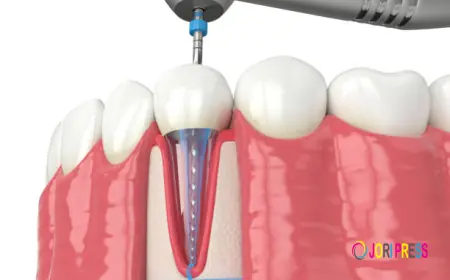Understanding the Allis Tissue Forceps in Surgical Applications
The world of surgical instruments is a highly specialized domain where every tool serves a critical purpose. Among these tools, the Allis tissue forceps stand as a trusted instrument in various surgical procedures. Widely recognized for their precision and efficiency, Allis tissue forceps play a pivotal role in securely handling tissues during operations.

What Are Allis Tissue Forceps?
Allis tissue forceps, commonly referred to as Allis clamps, are specialized surgical instruments used for grasping and holding tissues. Designed with sharp, interlocking teeth, they provide a secure grip on delicate tissues without causing undue damage. These forceps typically come in various sizes to cater to different surgical needs, making them highly versatile across multiple medical disciplines.
Crafted from stainless steel, Allis tissue forceps are sterilizable and reusable, ensuring their consistent performance during repeated procedures. Their ergonomically designed handles ensure precise control for surgeons, even during lengthy and complex surgeries. This blend of durability and functionality makes the Allis forceps an essential part of any surgical toolkit.
Key Features of Allis Tissue Forceps
The defining feature of Allis tissue forceps is their serrated gripping surface. This unique design allows for a firm yet gentle hold on tissues such as the intestines, fascia, or skin edges. At the same time, the interlocking teeth prevent slippage, an important characteristic when working on delicate tissues that cannot afford to be damaged.
The locking mechanism of these forceps further enhances their utility. Surgeons can firmly clamp tissues in place without needing constant manual pressure, freeing their hands to perform other critical steps in the procedure. This convenience, paired with their precise grip, supports smoother, more efficient surgical workflows.
Applications of Allis Tissue Forceps in Surgery
The versatility of Allis forceps makes them a staple in surgeries ranging from general to specialty procedures. They are primarily used to handle soft tissues, allowing surgeons to hold or move tissues out of the way for better visibility and access to the surgical site. Some of the common procedures where Allis tissue forceps are employed include:
Abdominal Surgeries
During operations involving the intestines, such as resections or repairs, Allis forceps are often used to gently hold and manipulate intestinal tissues. Their secure grip ensures precision without risking excessive tissue trauma.
Gynecological Procedures
Allis forceps are frequently utilized in gynecological surgeries, such as hysterectomies or cesarean sections. They play a vital role in holding uterine or cervical tissues, providing surgeons with the control they need for successful outcomes.
Lesion and Tumor Removal
Whether benign or malignant, removing abnormal growths sometimes requires delicate handling of the surrounding tissues. Allis tissue forceps deliver the precision needed for such critical tasks.
Skin and Soft Tissue Surgery
Given their ability to grip without excessive pressure, these forceps are employed in procedures involving fascia or subcutaneous layers. Their use minimizes tissue trauma while providing stability.
Advantages of Using Allis Tissue Forceps
The reason Allis forceps remain a favored tool among surgeons is their multifaceted benefits. From their ability to enhance surgical precision to their contribution to patient safety, their advantages are significant:
Reliability in Delicate Procedures
The precision offered by Allis forceps cannot be overstated. They improve procedural accuracy, especially in operations where every millimeter matters.
Versatility Across Specialties
Few surgical instruments find such widespread application as Allis tissue forceps. Whether in orthopedics, gynecology, or general surgery, their value is universally recognized.
Durability for Repeated Use
Manufactured from high-grade stainless steel, these forceps are built to last. Proper cleaning and sterilization protocols allow them to deliver consistent performance time after time.
Reduction in Tissue Damage
While their grip is strong, it is gentle enough to minimize the risk of crushing or tearing tissue. This balance of strength and finesse helps in promoting quicker recovery for patients.
Caring for and Maintaining Allis Tissue Forceps
To maximize the lifespan and functionality of Allis tissue forceps, proper care is essential. After every use, they must be cleaned and sterilized thoroughly to prevent contamination or infection. Ensuring that the locking mechanism and serrated teeth remain in pristine condition is crucial to maintaining their performance. With careful maintenance, these indispensable tools can continue to support successful surgical outcomes for many years.
Final Thoughts
The Allis tissue forceps are much more than just another surgical tool; they are a testament to the advancements in medical technology designed to enhance precision and patient care. From holding tissues out of the way in intricate procedures to minimizing trauma during delicate operations, their role is both versatile and critical. For surgeons seeking reliable, durable, and highly functional instruments, the Allis tissue forceps remain an unparalleled choice.
Recognizing the importance of investing in high-quality surgical tools ensures not only the success of operations but also the well-being of patients. By leveraging instruments like the Allis tissue forceps, medical professionals can continue to push the boundaries of surgical excellence.
What's Your Reaction?
 Like
0
Like
0
 Dislike
0
Dislike
0
 Love
0
Love
0
 Funny
0
Funny
0
 Angry
0
Angry
0
 Sad
0
Sad
0
 Wow
0
Wow
0















































